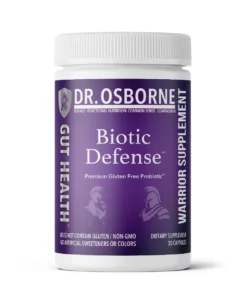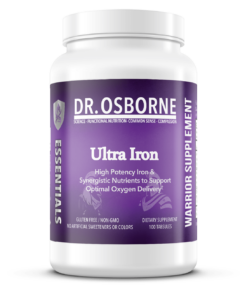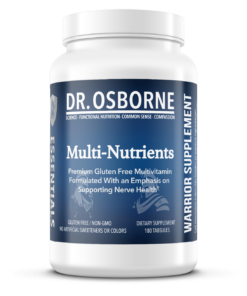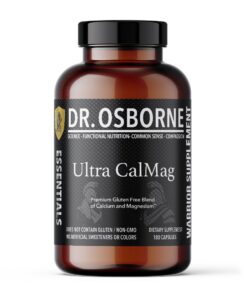new to the gluten free journey?
new to the gluten free journey?
Natural wine is a beautiful thing.
Simply, it’s when a wine is made with organic grapes and native yeast. Nothing is added, nothing is removed. No human intervention.
That means natural wine is alive in the bottle, full of beneficial bacteria and antioxidants. It hasn’t been filtered or chemically altered in any way.
From a taste perspective, this vitality makes each bottle of natural wine a unique experience. Leave the same bottle open on your counter overnight and you’ll wake up to a whole new wine.
But the beauty of living wine goes beyond taste. All those yeasts, bacteria, and colorful compounds that make natural wine delicious also help you live a healthier life. The secret lies in your gut bacteria.
Right now, as you’re reading this, trillions of bacteria are thriving in your gut. These little companions outnumber your own cells – you’re actually more bacteria than you are human. Feeding the good bacteria in your gut can give you some glorious health benefits: staying lean, feeling happy, and even being more social.
For example…
Natural wine is alive, which means it’s rich with precious bacteria and compounds that strengthen your microbiome. To name a few …
Polyphenols, the antioxidants that give red wine its color, feed good gut bacteria. They also remove harmful bacteria to make room for the new ones to grow. Two superb sources of polyphenols in your diet are red wine and coffee.
Flavanols and wine aroma compounds protect brain cells from dying in people who drink moderate red wine daily, and ward off Alzheimer’s Disease in mice.
Resveratrol, an antioxidant found in grape skins, makes mice leaner by fostering a balanced gut. You may have heard of resveratrol; it gets a lot of attention in the news, but the reality is most red wines have nearly undetectable amounts of it. Wines that have the most are Malbec, Pinot Noir, Petite Syrah, and St. Laurent.
Saccharomyces cerevisiae is a wild yeast that gives wine a spicy, fruity flavor. But it’s good for more than taste: S. cerevisiae also increases absorption of zinc, magnesium, calcium, and iron through your intestinal wall. Commercial wine is sterilized to get rid of most native yeast, but you’ll find an abundance of S. cerevisiae in natural wine.
Probiotic bacteria also form in wine while it ferments. Commercial wines are filtered to get rid of nearly all bacteria and sediment, but natural wine keeps those beneficial bacteria in. Among them is Pediococcus pentosaceus, a bacterium that attaches to your intestinal wall and protects it from pathogens like E. coli. Wine also contains lactic acid bacteria that have similar probiotic benefits as fermented foods like kimchi and miso, and unique wine probiotics that decrease gut inflammation in mice.
It can, although the harmful compounds are either far lower or entirely absent in natural wine.
Sugar can feed the harmful yeast Candida and other pathogens in your gut. Sugar hurts gut bacterial balance and decreases brain function in mice, too. Stick to “dry” wines that are left to fully ferment; they have less than 3g/L of sugar, which tastes crisp and won’t cause bloating.
Alcohol is a toxin for your gut, too. It increases gut permeability (leaky gut), which can cause gut inflammation. Try to find lower alcohol wines — less than 12.5% ABV — to avoid negative effects.
Acetaldehyde is a fermentation byproduct that increases intestinal permeability and makes you feel hungover. During the final steps of fermentation, though, yeasts use up acetaldehyde as fuel, and bacteria break it down. Natural wines typically have far less acetaldehyde because they’re unfiltered and ferment without human intervention.
The short answer is to get real wine, grown in accordance with nature.
Organic grapes. Grapes grown organically (without pesticides) have more polyphenols and antioxidants than conventional grapes do. Grapevines produce antioxidants as a natural way to protect against microbes and pests. Organic vines aren’t artificially protected by chemical sprays, which means they produce many more antioxidants to survive.
Natural wines. Commercial processing techniques, like extreme filtration, damage or remove many of the good compounds in wine. Manufacturers often replace them with artificial coloring and lab-created yeast strains.
Low sulfites. Sulfites kill bacteria to stabilize a wine. The lower the sulfites, the more alive a wine remains. You can see the difference under a microscope — low-sulfite wine is vibrant with a diverse spectrum of wild bacteria and yeast.
Sugar-free, low-alcohol wine. Sugar and alcohol are the two biggest toxins in wine. Try to find the driest, lowest alcohol wines possible.
So there you have it. By drinking moderate amounts of natural wine, you can help keep the companions in your gut healthy and happy. In turn, they’ll take good care of you.
This site uses Akismet to reduce spam. Learn how your comment data is processed.




Stay up-to-date with the latest articles, tips, recipes and more.

*These statements have not been evaluated by the Food and Drug Administration. This product is not intended to diagnose, treat, cure or prevent any disease.
If you are pregnant, nursing, taking medication, or have a medical condition, consult your physician before using this product.
The entire contents of this website are based upon the opinions of Peter Osborne, unless otherwise noted. Individual articles are based upon the opinions of the respective author, who retains copyright as marked. The information on this website is not intended to replace a one-on-one relationship with a qualified health care professional and is not intended as medical advice. It is intended as a sharing of knowledge and information from the research and experience of Peter Osborne and his community. Peter Osborne encourages you to make your own health care decisions based upon your research and in partnership with a qualified health care professional.
Reviews
There are no reviews yet.